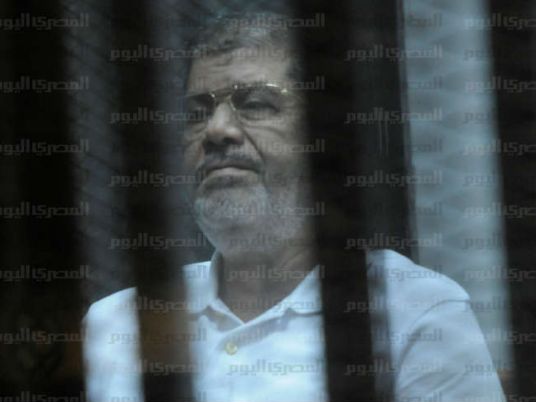In a defensive English-language statement to the foreign press, President Mohamed Morsy defended his recent controversial decisions and listed his achievements, while harshly criticizing his opponents. The state-run Al-Ahram website published the statement on Friday.
The opposition consists of "counter-revolutionary forces aiming at destroying the gains of the revolution," Morsy claimed.
The statement explained that the president could not have changed the date of the constitutional referendum, which has been the source of a major divide between Islamist and secular forces. According to the 30 March Constitutional Declaration the referendum must take place within 15 days after receiving the draft from the Constituent Assembly, Morsy explained. Furthermore, the president had called for a national dialogue that could potentially lead to amending certain articles in the constitution, provided there is consensus. Those proposed amendments would be presented to the new People's Assembly once elected, the statement continued.
Morsy also stated that his legislative powers would be transferred to the Shura Council if the constitution passes the referendum, and that is why he is looking for quick ways to fill empty seats on the council.
The statement acknowledged Morsy's previous role as head of the Freedom and Justice Party, and his "hard work with different political forces in order to reach an accord on how to move toward forming a representative government."
Morsy took several steps after being elected president in June 2012 to ensure social harmony, the statement argued, outlining acts such as his decision in July to reinstate the People's Assembly that had been dissolved "in a strange way" by the Supreme Constitutional Court. However, because the president respected the judicial authority, Morsy then went back on that decision in accordance with the SCC's decision, the statement argued.
Other supposed acheivements included the attempt to reach "national reconciliation through tolerating economic crimes" and not resorting to huge corruption-purging operations, but rather choosing to "push all Egyptians to work together and build a new Egypt." Furthermore, Morsy appointed advisors from different political positions and a "non-ideological" Cabinet of technocrats, as well as a vice president coming from the independent judiciary movement, the statement alleged.
Morsy also claimed to have started a national dialogue with different political forces and groups over the last few months. Furthermore, the dissolved Parliament managed to produce a strong Constituent Assembly that worked hard to draft the constitution, he wrote.
However, despite these achievements, the statement said that "counter-revolutionary forces" were trying to reverse all of those gains. For instance, the former prosecutor general acquitted figures from the former regime of crimes commited during the revolution, and there is "incoming evidence from several parties that the SCC was planning to dissolve the Constituent Assembly."
That is why the president tried to remove former prosecutor general from his position and offered him an ambassadorship to the Vatican, "which he primarily accepted, then backed off, with the support of certain figures that are supposedly with the revolution," the statement claimed. The second pre-emptive act was to immunize the Constituent Assembly through the 22 November Constitutional Declaration, Morsy said.

